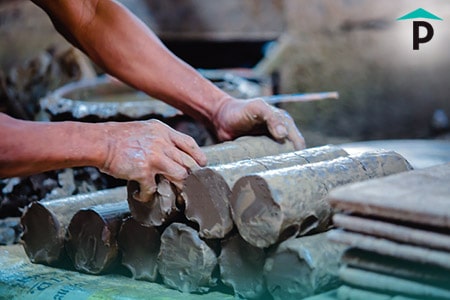Payment and performance bonds for construction protect both parties involved in a contract by guaranteeing that if there is a breach of contract from either party, then they will be compensated for their losses incurred as well as being able to finish the project without interruption from the other party that has breached their end of the agreement.
Call: (844) 612-7238 to get started
Surety Bonds are a contract between three parties: the principal (your company), an obligee (the party to whom you owe money), and the surety bond company. The purpose of this agreement is for your business to compensate another entity should you fail to perform as required by law or contract, such as not paying subcontractors.
The surety bond company is essentially your insurance for the contract. The fee you pay to purchase construction bonds ensures that should something go wrong, such as not paying subcontractors or workers on time, there will be an entity that can compensate for the obligation and complete the project in question. By law, each state has its mandated coverage levels for surety bonds. You can learn more about your state’s specific bonding requirements by contacting our Surety Bond Agent.
What is Subcontractor Default Insurance?
 Subcontractor Default Insurance is a type of surety bond that provides protection to project owners in the event that a subcontractor fails to meet their obligations as outlined in the contract. This could include things such as completing work on time, to standard, or at all. If damages are caused as a result of the subcontractor’s failure to perform, then this insurance will help cover those costs.
Subcontractor Default Insurance is a type of surety bond that provides protection to project owners in the event that a subcontractor fails to meet their obligations as outlined in the contract. This could include things such as completing work on time, to standard, or at all. If damages are caused as a result of the subcontractor’s failure to perform, then this insurance will help cover those costs.
Types of Surety Bonds:
There are many different types of surety bonds, but most construction projects will require one or more of the following:
- Performance bond: This bond guarantees that your business will complete the project and is required by law if your contract requires you to make payments to subcontractors.
- Payment bonds: This bond guarantees that any contractor or supplier who works on a job for which payment has been withheld due to nonperformance will be paid within a certain time frame (usually 120 days) as determined by state law. The surety company underwriting the Payment Bond must approve all contractors, suppliers, and sub-contractors before they can work on your project.
- Contract performance bond: A performance bond is required for contracts that require the completion of an activity or project, such as construction. A contract performance bond ensures your client will be protected if you fail to fulfill contractual obligations outlined in a signed agreement.
- Contract bonds: Contract bonds are a type of surety bond that ensures the contract is completed as agreed. The most common type of contract bond is the performance bond, which guarantees that the contractor will complete the project according to the terms of the contract. Contract bonds are often viewed as all Surety Bonds because they’re contracts.
- Construction bonds: These are required to secure the payment of subcontractors, suppliers, and laborers. Also known as “Sub-Sureties” or performance bonds, they guarantee that you will pay for all work done on your project by a third-party contractor if the main contractor fails to do so.
- Bid bonds: A bid bond is a type of performance bond that guarantees the bidder on a construction project will enter into the contract and complete the work if they are awarded the job.
- Subcontractor performance bonds: A subcontractor performance bond is a type of surety bond that guarantees the contractor will complete their contractual obligations to the project. This type of bond is often required by construction contracts and helps protect the owner or general contractor from financial losses if the subcontractor fails to perform their work.
 Construction performance bonds: A construction performance bond is a type of surety bond that guarantees the completion of a construction project. This type of bond is often required by municipalities or other entities when awarding contracts for public works projects. The process of obtaining a construction performance bond can be complex, but a Contractors Bond Company can help make it easier.
Construction performance bonds: A construction performance bond is a type of surety bond that guarantees the completion of a construction project. This type of bond is often required by municipalities or other entities when awarding contracts for public works projects. The process of obtaining a construction performance bond can be complex, but a Contractors Bond Company can help make it easier.- Labor and material bonds: Labor and material bonds are payment bonds that guarantee that the contractor will pay for the labor and materials used in the project. These bonds are usually required for large construction projects.
How to Get a Surety Bond?
Getting a surety bond may seem like a daunting task, but with the help of our qualified surety bond brokers, it is an easy process. A surety bond is a three-party agreement between the obligee, the principal, and the surety company. The obligee is the party who requires the bond, the principal is the person or company who needs to obtain the bond, and the surety company is the entity that provides coverage in case of a claim.
We Work To Expand Our Clients Capabilities, Winning Them Bids And Growing Their Businesses.
At Pinnacle Surety, we understand the importance of contract bonds and want to make sure our clients have access to the best products and services possible. Contact us today to learn more about how we can help you get bonded!


